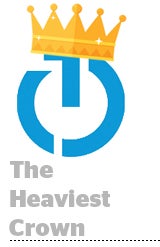 Late last year, analysts questioned whether The Trade Desk could keep pace with runaway growth forecasts, after it rocketed from a $1 billion company in 2016 to $6 billion.
Late last year, analysts questioned whether The Trade Desk could keep pace with runaway growth forecasts, after it rocketed from a $1 billion company in 2016 to $6 billion.
Less than a year later, The Trade Desk continues to beat expectations. Its Q2 revenue grew by 42% year over year to $159.9 million, according to its quarterly earnings report released Thursday, propelling its market cap to $12.2 billion.
The Trade Desk’s net profit was up as well, from $19.3 million in Q2 2018 to $27.8 million a year later.
CEO Jeff Green and investors seemed particularly keen on recent developments during the earnings call. Namely, Amazon opened up its Fire TV CTV inventory to programmatic demand, with The Trade Desk, dataxu and, of course, Amazon’s own DSP as inaugural platform partners.
But there is another development underfoot that originates from The Trade Desk: It is starting to flex its muscles to influence supply-side tech companies, publishers and other programmatic companies and shape real-time bidding infrastructure.
Catching Fire
Green shed some light on the significance of the recent inventory deal with Amazon, which he said could be a pivotal moment for the CTV flywheel.
“A lot of people ask about Amazon, ‘What are they doing? What does third-party apps means? What is Amazon Publisher Services (APS)?’” Green said.
The most important difference between the Amazon CTV offering and other major CTV video sources, such as Google, Roku or AT&T, is that it can be tied across the open web. So buyers can frequency-cap Fire TV inventory along with other programmatic video campaigns, and they can also attribute Amazon’s video supply against other sources based on their own methodology.
“This makes the measurement with Fire TV meaningfully better than what we can get in any other walled garden,” Green said.
It is also important that the Fire TV product falls within the APS team. Media companies with inventory and ad tech (think Hulu or YouTube) reserve some of the supply for themselves. And it’s often the best inventory, thus making their ad tech perform better on campaigns.
But the Amazon DSP has no privileged supply or bid mechanisms built into the Fire TV product.
Green also cleared up one aspect of Fire TV deal that had raised eyebrows with programmatic buyers who thought it might open a backdoor into YouTube: The inventory comes from all ad-supported third-party apps – apps which are not owned by Amazon – except for YouTube.
The Trade Desk also doesn’t have access to Amazon’s shopper and transaction data, and Green doesn’t expect Amazon to ever let that slip to outside platforms.
But even if Amazon’s shopper data can only be tapped by Amazon’s DSP, Green said there’s still a big opportunity for The Trade Desk because the world’s largest brands don’t want to give their data and marketing budgets directly to Amazon.
Carrying a big stick
The Trade Desk now controls a meaningful share of data-driven agency budgets and has built up equity with brand and programmatic partners, Green said. And the company has become more assertive about how it throws its weight around.
“Clients expect us to leverage our position to apply pressure to the supply side of ad tech,” he said.
The Trade Desk has influenced programmatic “in the background,” but the company is taking firmer stances now even when it makes supply partners uncomfortable, Green said.
Last month, AdExchanger reported that The Trade Desk had locked horns with Google over details in the new IAB Tech Lab sellers.json and SupplyChain Object specs, which could help buyers reveal the margins taken by supply-side tech.
The dispute is just a technical quibble within one of the IAB Tech Lab working groups dedicated to transparency initiatives. But it’s important because The Trade Desk may be able to shift Google, which otherwise could steamroll smaller programmatic companies into carving out an exemption for its own product, exchange bidding, which aggregates supply and doesn’t expose the margins it takes from campaigns.
The Trade Desk is also throwing its weight around with the Unified ID Solution, a cookie-based ID that ad tech companies can freely adopt to expand their own cookie footprint – and which strengthens The Trade Desk’s position as the default walled garden alternative.
It’s “very difficult” to be a top-10 supplier to The Trade Desk in any category – as an inventory supplier, vendor partner or data seller – without adopting the Unified ID.
“As we get bigger, we’re going to demand that there be more transparency,” Green said. “We’re in the position of power.”











